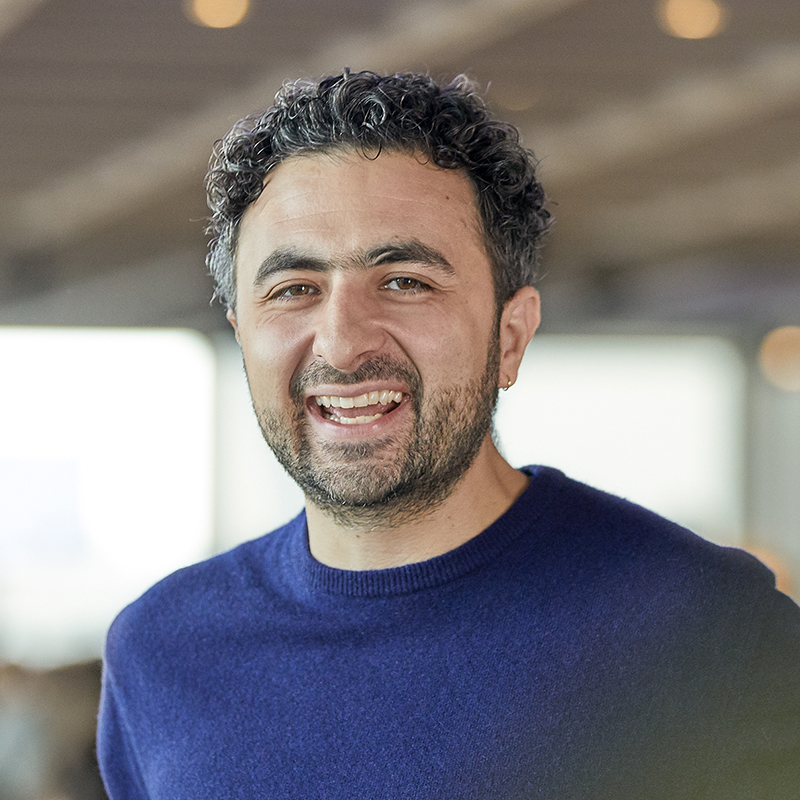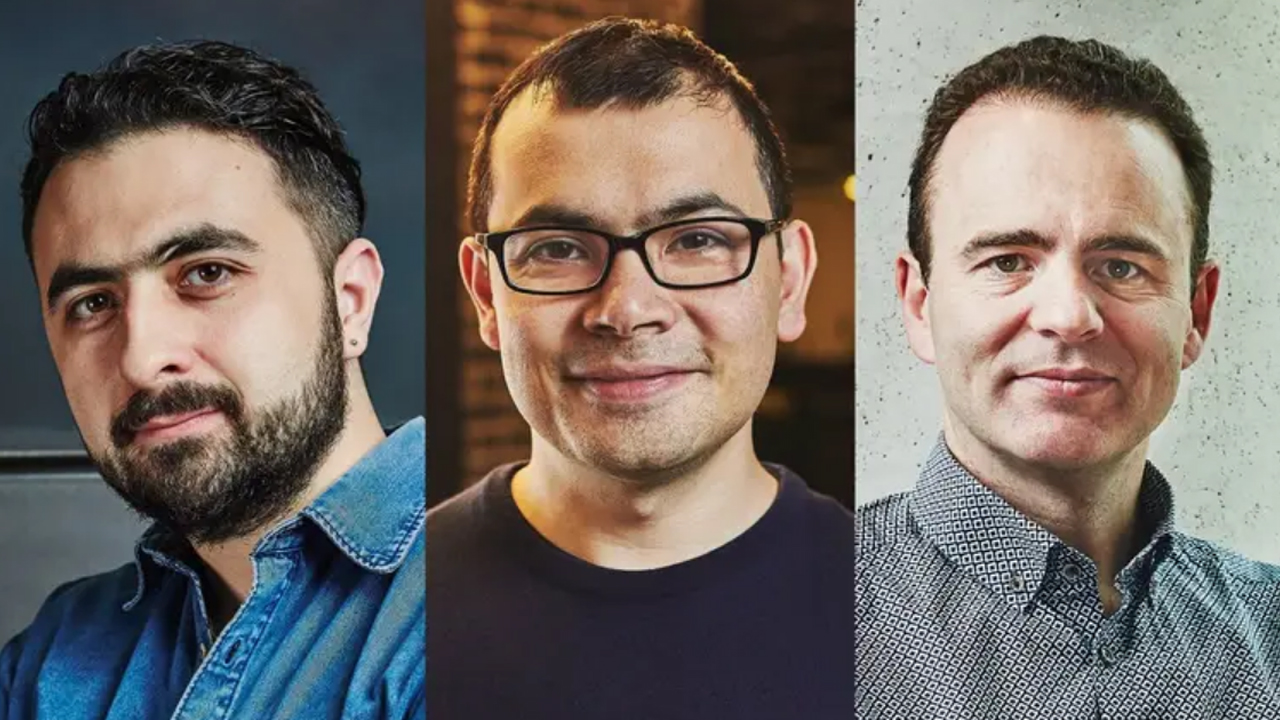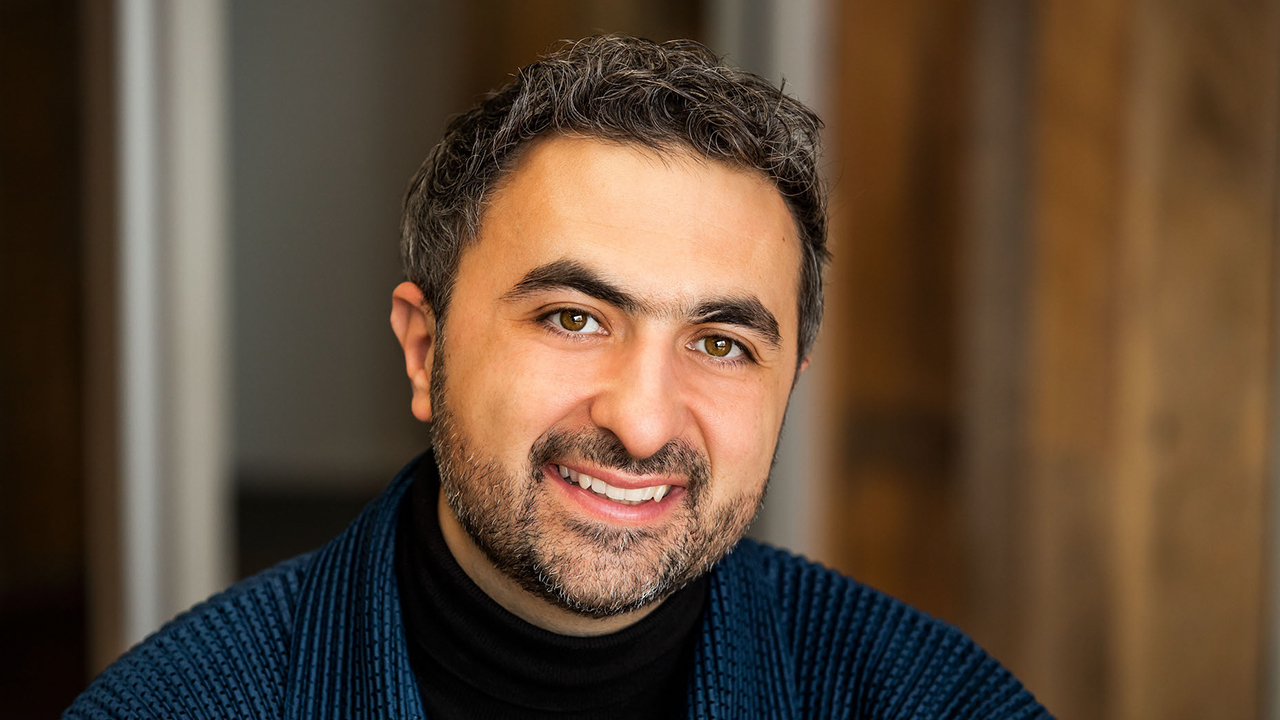
"AI will touch every area of our lives. The possibilities are endless!"
- Mustafa Suleyman
There is no denying that computers can work with equations in a way that is faster than any capable human beings. And with artificial intelligence (AI), computers can be made smarter, by making them capable of working even beyond what was programmed into them.
This is possible because AIs work by learning and not by what's told.
Mustafa Suleyman may not be an AI researcher by training. But as an entrepreneur at heart, he was the one who helped pivoted the AI field beyond what was expected.
While there are areas that AI is winning, there are areas where AI is not quite there yet.
The development of the technology is ongoing.
Suleyman, an expert negotiator and visionary, hopes that one day, humans and computers can co-exist, in which there are ethics that should be followed.
According to him, there are boundaries that should not be crossed.
Early Life And Career
Mustafa Suleyman was born in August 1984. His father was a Syrian-born taxi driver, and his mother was an English nurse.
Growing up in London Borough of Islington, Suleyman who lived with his parents and his two younger brothers went to Thornhill Primary School, before attending Queen Elizabeth's School, a boys' grammar school in Barnet.
It was during this time, that Suleyman developed an early interest in entrepreneurship.
Suleyman learned how to conduct business, by buying items at wholesale, and resell them at school to make money. He was making a good amount of profit, before his teachers found out and closed it down.
Entrepreneur at heart, Suleyman conducted his next business, where he borrowed hospital wheelchairs to create a guide to London for young disabled people. This earned Suleyman a Young Enterprise award.
It was also around that time, when Suleyman met his DeepMind co-founder, Demis Hassabis, through his best friend, Hassabis' younger brother.
"Demis and I had conversations about how to impact the world, and he'd argue that we need to build these grand simulations that one day will model all the complex dynamics of our financial systems and solve our toughest social problems. I'd say we have to engage with the real world today," once said Suleyman, when he recalled his early days.
At that time, Suleyman was more into business, while Hassabis was more into social impact than earning money.
When he grew older, Suleyman went to Mansfield College at Oxford to read philosophy and theology. This was when he realized that formal education was not his thing, and dropped out in the second year.
After he left Mansfield College, his activities included helping start the Muslim Youth Helpline with his university friend Mohammed Mamdani, to then work for London mayor Ken Livingstone to advise him on human rights policy.
Suleyman then went to start Reos Partners, a consulting business that provided clients with methods from conflict resolution to navigate social problems. Suleyman worked as the firm's negotiator, and worked for clients that included the United Nations, the Dutch government, and the World Wide Fund for Nature.
Creating The DeepMind
It was only after this, which was on 23 September 2010, that Suleyman co-founded DeepMind Technologies with Hassabis and Shane Legg.
Hassabis led the company as its CEO, while Suleyman became its Chief Product Officer, and later, its Head of Applied AI.
At first, the company began working on AI by first teaching an agent to play classic games made in the 70s and 80s.
DeepMind focused on teaching AI agents on old games because they are relatively primitive if compared to more modern games, in terms of gameplay and graphics. Some of the games DeepMind used, included Breakout, Pong and Space Invaders.
When the AI agent was first introduced to the games, the agent came without any prior knowledge of the games' rules. It's only after spending a significant amount of time failing and making mistakes, that the AI would eventually become an expert.
The goal of the founders is to create a general-purpose AI that can be useful and effective for almost anything.
Backed by a number of big names, including Horizons Ventures and Founders Fund, entrepreneurs Scott Banister, Peter Thiel, Elon Musk, Jaan Tallinn and others, DeepMind Technologies quickly established itself as one of the leaders in the AI sector
DeepMind, Acquired By Google

When Google acquired it, DeepMind had not launched any products, nor found a way to turn its AI into revenue.
But that didn't stop Google from buying the London-based company, in one of its biggest European acquisition.
It was on 26 January 2014, that Google announced the company had acquired DeepMind for £400 million.
The acquisition took place soon after Facebook reportedly ended negotiations with DeepMind in 2013.
With Google's humongous resources, the company develops the ability to jump, before it can run. Knowing that it is having a big boost behind its back, the company quickly established an AI ethics board.
Later, DeepMind partnered with Amazon, Google, Facebook, IBM and Microsoft, to co-found Partnership on AI, an organization devoted to the society-AI interface. At Partnership on AI, Suleyman is its founding co-chair.
Then, DeepMind opened DeepMind Ethics and Society to focus on providing answers to ethical and societal questions raised by artificial intelligence.
When DeepMind finally matured, the company is considered among a few that helped developed Google's internal AI systems.
And Suleyman was for integrating the company's technology across Google's products, in order to ensure clear communication among the two companies' top engineers.
"I've got five teams, working on YouTube, search, health, natural-language understanding and some Google X projects," Suleyman said.
"We're working at applying the core engine that sits behind the Atari games player across the company. One is in YouTube-recommendation personalization. We try to learn from the types of videos that lots of users are watching in aggregate to better recommend at the right time, in the right place, what they'd like. Then search: think of search as a process of querying an engine, browsing through links generated, then refining your query in this iterative feedback cycle. Over time we can improve results."
Google has high hopes with its DeepMind acquisition, but the tech giant isn't pressuring DeepMind to help it boost revenue.
"There was never any expectation we'd do that - we're a long-term research effort," explained Suleyman. "Think of deep learning as one of the first steps on the way to building general-purpose learning systems. If we just search for solutions involving products we can imagine today, we're constraining the limits of our imagination."
In February 2016, Suleyman launched DeepMind Health at the Royal Society of Medicine.
What it does, is building clinician-led technology for the NHS and other partners to improve the quality of frontline healthcare services. One the company's first projects, is called Streams, which is a secure mobile app that helps doctors and nurses give faster urgent care to patients showing signs of deterioration by giving them the right information more quickly.
Under Suleyman, DeepMind also made a number of other collaborations and partnerships with more healthcare organizations from all over the UK.
It was Suleyman who led teams inventing and deploying cutting edge AI systems to accurately detect breast cancer in mammograms, diagnose the many different eye diseases in OCT scans, to control Google’s multi-billion dollar data centers to optimize energy consumption, and many more.
Suleyman was also credited for being vocal about not using AI technology for military applications.
As a matter of fact, Suleyman was praised by many after taking a principled stand against Google’s contract with the U.S. Department of Defense. At that time, Google was developing 'Project Maven,' which would give autonomous military the abilities to use machine-learning and image-recognition algorithms to learn millions of hours of drone footage.
DeepMind has made numerous headlines, and among them, included how its AI managed to beat human capabilities in a range of games. Once of which, was when DeepMind’s AlphaGo managed to beat Go world champion Lee Sedol in a five-game match.
In an interview, Lee Sedol praised DeepMind, and said that AI is an entity that cannot be defeated.
Leaving DeepMind, Leaving Google
It was in December 2019, when Mustafa Suleyman said that he would be leaving DeepMind to join Google, where he would work in a policy role.
But it was only later, that reports revealed that Suleyman was actually placed on leave at DeepMind. This happened after an investigation was conducted when Suleyman was allegedly accused for bullying.
DeepMind had to even hire an external lawyer to investigate this allegation.
It was reported that Suleyman's "management style fell short" of expected standards.
The investigation also found further details about Suleyman, including claims where he boasted about "crushing people", and "had a habit of flying off the handle out of nowhere." It was also found that Suleyman frequently demanded DeepMind employees to do things that aren't related to their jobs.
This was when reports suggested that Suleyman had been placed on administrative leave because of controversy related to some of the projects he led.
Due to the allegation, Suleyman lost some of his influence and responsibilities at DeepMind. Because the company's employees complained about his management style, the pressure forced him to quit working at DeepMind, and head to work at Google’s headquarters in California.
"I really screwed up. I was very demanding and pretty relentless," he said, adding that he had set "pretty unreasonable expectations," and that led to "a very rough environment for some people. I remain very sorry about the impact that caused people and the hurt that people felt there."
Suleyman then announced that he was also quitting Google.

The effectively ended Suleyman's seven years work with Google pioneering DeepMind in making a number of breakthroughs in AI, with his last role as the company's Vice President of AI Product Management and Policy.
Among the reasons, it was said that Suleyman somehow struggled to ensure that DeepMind's technology would be used ethically by Google's parent company, Alphabet.
Suleyman left because his attempt to create an independent AI ethics board didn't work as he expected. He also made unsuccessful attempts to create a legal structure that would give DeepMind more independence when working inside Google.
With his experience and knowledge, Suleyman started using them on the venture capital side.
After previously investing in companies alongside Greylock partner Reid Hoffman, Suleyman finally made a full leap to join Greylock as its venture partner.
"We made a lot of mistakes in the way that we attempted to set up the board, and I’m not sure that we can say it was definitely successful, but I do believe that radical experimentation is essential here," Suleyman said in a recorded interview. "We’ve experimented with different oversight boards, with different ethical charters, with types of research."
"I definitely feel that we haven’t really come close to cracking this nut of how we make technology platforms, software, and of course AI feel like it’s happening with people, and where people have significant influence in shaping how it arrives in their world and doesn’t just happen to people."
In March 2022, Suleyman co-founded Inflection AI, an AI lab venture with Greylock's Hoffman.
His goal for the company, is to leverage "AI to help humans 'talk' to computers."
Two years later, in March 2024, Microsoft appointed Suleyman as EVP and CEO of its consumer AI unit, Microsoft AI. Following Suleyman joining Microsoft, a number of his team members from Inflection AI also joined him at Microsoft.
